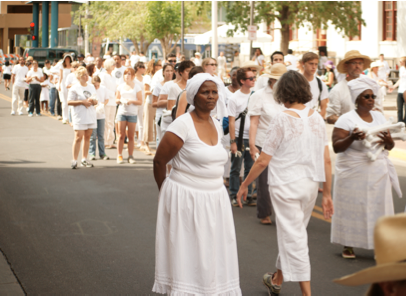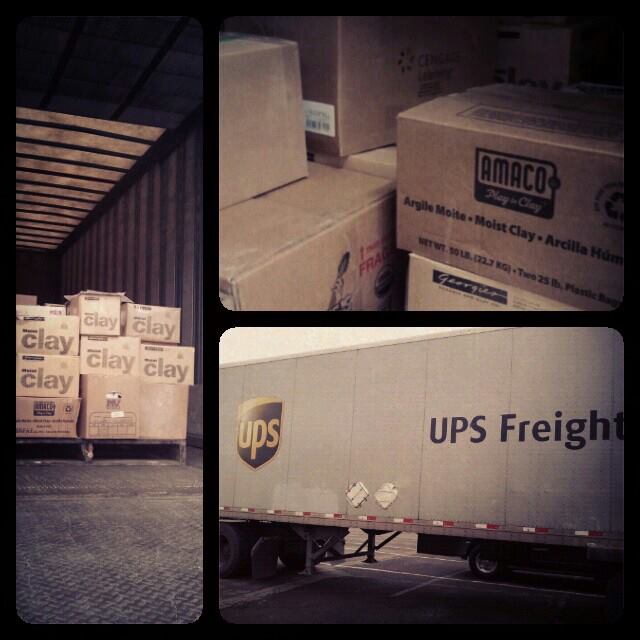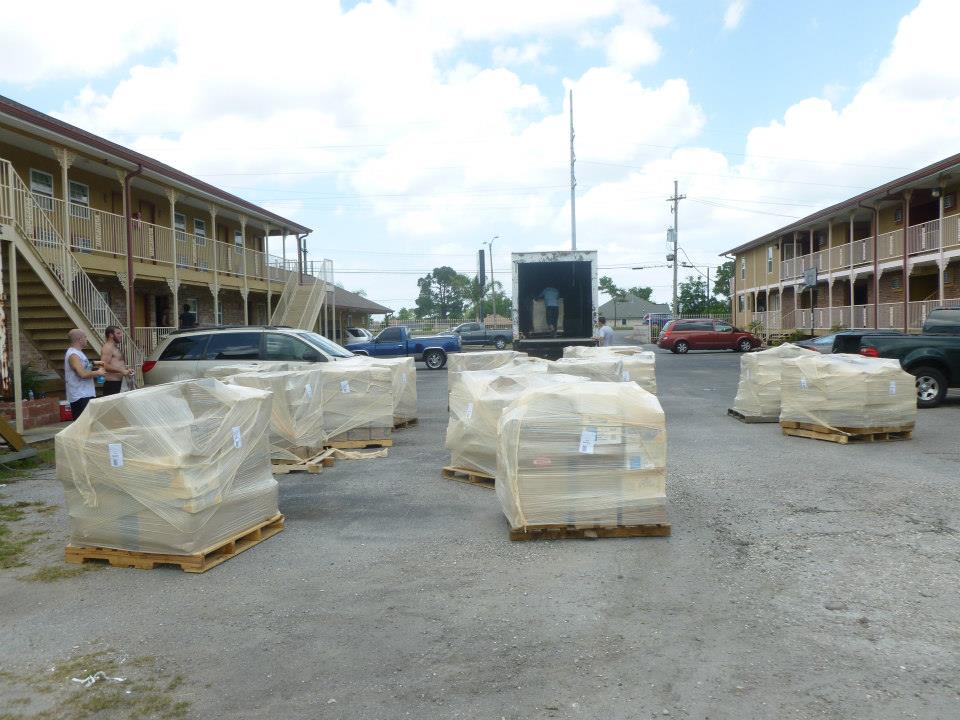59 hours and counting...
 Wednesday, June 5, 2013 at 10:26AM
Wednesday, June 5, 2013 at 10:26AM Just three days! Three days until thousands, dressed in white, will gather on the National Mall in Washington, D.C., coming together in solidarity to create a visible petition against the ongoing atrocities being committed in Sudan, South Sudan, the Democratic Republic of the Congo, Burma, Somalia and Syria. It’s been an incredible journey, bringing together thousands of participants around the world to utilize the power of a striking visual statement, the bone, as a tool to educate, engage and inspire action.

Over the last several months, we’ve been based in both Albuquerque and D.C., applying for permits, securing event equipment, recruiting volunteers, publicizing the event, and coordinating boxes and boxes of bones from across the country to be transported to the National Mall. This week, we’ll be honest, it’s been a mix of utter chaos and anticipation as we’ve been working to pull this off!
Yesterday, our friends at UPS picked up nearly 200 boxes from one of our storage locations in D.C., after loading up another 48,000 bones last week. We couldn’t be more grateful for their help during past few weeks, visiting each hub, meeting with the State Coordinators and volunteers who organized storage and making the entire process seamless. What seemed like endless number-crunching and unique logistical obstacles were welcomed by our fearless shipping heroes and it was so lovely to see pictures and hear stories from each unique pick-up location. There’s something beautiful about imagining those bones traveling thousands of miles, carefully packed, all headed for the same place, brought together to build something so much larger than themselves.


It’s going to be quite a culmination come Saturday. Hours spent by individuals and communities crafting, packing and sending their handmade bones off to join others, each representing a voice, a story to be shared on the National Mall. We’ve been shocked to see how many members of the OMB family are traveling to D.C. to lay down their bones in person. Some have been with the project since its inception, many from our home state of New Mexico, and have watched One Million Bones evolve from an idea into an international social arts practice. It will also be the first time we’ve actually met many of our most dedicated volunteers, coordinators and supporters from all corners of the country…we’re both excited and grateful for the chance to thank them all in person!
We’ll also be welcoming the Students Rebuild On Tour team in D.C. after they’ve spent months on the road, visiting schools and community events, challenging those they met to make bones for hope and healing, resulting in thousands made for the National Mall installation. They’ll be parking their interactive trailer on the Mall for everyone to check out!
If only every participant, every set of hands that crafted a bone, could join us on June 8, to physically lay the bones they made to rest. But we know that so many will be with us in spirit and it is truly a privilege to lay down bones in their name. We encourage anyone at home to tune in for our live stream on June 8 and 9 for a chance to virtually witness the bone-laying and listen to our speaker program and evening candlelight vigil.
We can’t wait to create this visible petition for all to see, to reflect on the visual that we create and what it represents to each of us, to listen to our speakers share the experiences that brought them here, to educate with workshops led by experts and activists, to advocate on Capitol Hill for a real change in foreign policy, and most importantly, to recognize the collective effort that carried this movement and the reality the bones represent.






